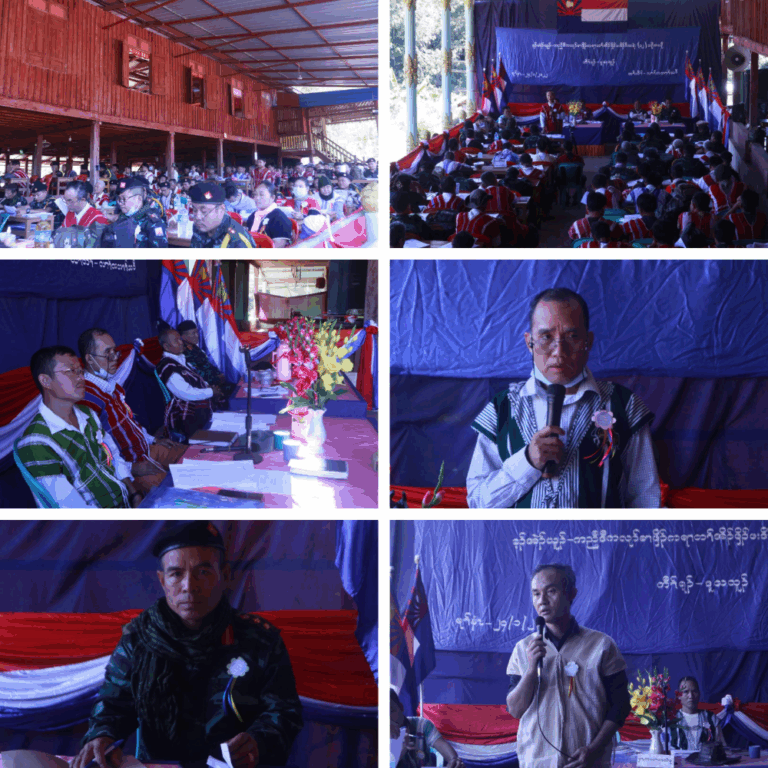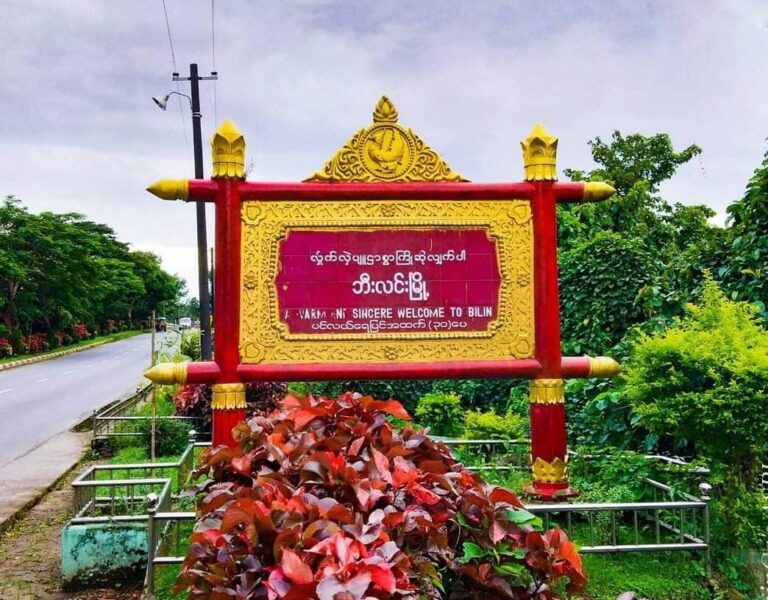WCRP: Ma Eli Htwe , 20 year-old, is from YaeLalKout Tan, in Rangon. She is working in a massage bar in Own Pinn village, which lies along a gas pipeline that is longer, but less well-known, than the controversial Yadana pipeline that it connects to. Today, Ohn Pin Kwin is predominantly home to ethnic Tavoy people, with a small Mon population.
 Due to her family’s financial struggles, Ma Ei Htwe works very hard to help support her family; unfortunately, the salary she is able to obtain is small, and it is not enough to cover her family’s daily expenses. Ma Ei Htwe’s father has passed away, and her mother can’t work anymore, as she is getting older. When Ma Ei Htwe lived in Yangon, she was working at a small shop, earning 1,000 kyat per day; 30,000 kyat per month. This salary would not cover expenses, so Ma Eli Htwe found a way to get a new job, with a higher salary.
Due to her family’s financial struggles, Ma Ei Htwe works very hard to help support her family; unfortunately, the salary she is able to obtain is small, and it is not enough to cover her family’s daily expenses. Ma Ei Htwe’s father has passed away, and her mother can’t work anymore, as she is getting older. When Ma Ei Htwe lived in Yangon, she was working at a small shop, earning 1,000 kyat per day; 30,000 kyat per month. This salary would not cover expenses, so Ma Eli Htwe found a way to get a new job, with a higher salary.
As Ma Eli Htew explains, “my boss has a restaurant in Own Pinn Kwin village, Tavoy district, and she said if I worked in her restaurant as a waitress, she would pay me a higher salary, so I followed her to work in her restaurant. A woman shop-owner gave 100,000 kyat to my mother for my salary, and told my mother that I have to work as a waitress in the restaurant. My mother and I did not know that I [would be working] at a massage bar”.
Ma Eli Htew was paid 10,000 kyat per month, and the owner supplied her food. If many customers came into the bar and visited her, she would get a little more money. Staff from the Total Pipeline Company, most of whom were Thai, Burmese, Chinese, and Malay, would often come to visit the bar. Sometimes villagers from the local area also came to the bar. Once the customers come into the restaurant, they choose the girl that they like, and that girl must sit at their table and wait on them; sometimes the customers would hug and kiss the girls. If a customer is eating at a table in a girl’s section, the girl must take care of them. If the customer does not pay for his visit, the girl must pay from her own salary.
“I just [knew] that I have to work in a massage bar when I arrived here”, says Ma Eli Htew, “I don’t want to work at a bar, but I have no choice and I need to work. I have no money to go back home, and my mother also already took my 100,000 kyat salary from the owner”.
There are now five locales serving alcohol in Ohn Pin Kwin; one run by an ethnic Mon proprietor, and the others by Burmese, and the rising number of bars and brothels in the area has had its effect on the community, with a spike in family disputes and domestic violence.
Bars, massage parlors, and brothels are not only found in Ohn Pin Kwin, Yebu Township, Mon State, but can also be found in Myaintayar, in southern Burma. According to one man who has been to visit a bar in Myaintayar, “there are now 135 bars, massage parlors, and brothels in Myaintayar, Mon State, with 15 women estimated to work in each bar, so around 1,500 women workers depend on [income from] prostitution and massage bars in Myaintayar”.
Over the years, political promotions have moved government employees from other parts of the country, and Cyclone Nargis has brought a swell of internal migration to the city, resulting in a more diverse population that has expanded neighborhoods, and filled vacant homes. Today, Myaintayar quarter is a mix of urbanite shopkeepers and hotel owners, larborers working in Mon State’s large industrial and agricultural sectors, NGO personnel and office representatives of various armed ethnic groups, and a sizable community of students and staff from nearby Moulmein University.
In the past, if someone came to visit the village, people would bring their guests to a tea shop, but now they bring their guests to a bar, or KTV. Nowadays, university students have started to drink beer, and sometimes they go to a restaurant to find a sex worker; students are visiting bars and KTV the most.
Sometimes sex workers can earn up to 150,000 kyat per month, especially when members of the authority, company bosses, and university students frequent the bar. Even if some women are working strictly as waitresses in these establishments, the community assumes that they are also prostitutes, and the community looks down upon her.
Along with these massage bars and KTV, come added dangers for students because the illegal bars are located close to their university, in Myaintayar section. As one man who has been to visit KTV notes, if a female student were to go out at night without a male friend, the community thinks that she is a prostitute, “it is not secure for them’, he says.
In beer bars there are not usually many sex workers in the waitress section, and they often hire male waiters as well as female. But in KTV, they sell beer and customers can also pay for sex workers. The two types of establishments have different lighting styles, so customers are able to tell from the outside, if a certain bar is a beer bar or KTV.
A large portion of these sex workers come from southern Burma, from areas such as Pakhoke Guu, Sar Lin Kyi, Wal, Pegu, and Yaesakyo City. These women have faced great difficulty in their home villages, such as lack of employment and such minimal salaries that they are not able to cover their daily expenses, and have been forced to find new jobs in other areas.
According to a 20 year-old woman currently working at KTV in Myintayar quarter, “even we want to work in our village, but there is [a] lack of jobs. If we would work [as seamstresses], we need money to join the sewing training [program]; [it] is very expensive [to join] the training. Even I want to join computer training, but I can’t join because the course is also expensive. I already [have a] passport to work in Thailand, but I need around 400,000 kyat for [a work] visa. I also need money for food costs, air ticket, and even when I arrive in Thailand, I need a work permit, and I also have to think about sending money home. That’s why I canceled my plan to go to Thailand, and I just work at [the] bar”.
Some sex workers do not stay in one bar for too long, but are always on the move. In the bars, the women are generally 18 years-old, with some working as prostitutes, and some working as waitresses. When customers come to the restaurant, the owner first asks if they want a girl. Then, if the customers agree, the girl must sit with them at their table. The customer pays 1,000 or 2,000 kyat for the girl to sit with them. Occasionally, when the girl brings beer or a drink for the customer, the girl has already charged them for beer.
“Now I already [paid] all of my debts, and I dropped out from these jobs”, says Ma Ei Htew, “I met a Rahkhine man when he visited our restaurant and I got married with him, and we live in this village together”. Ma Ei Htew has stopped working at beer bars, and currently lives in Own Pinn Kwin village.
Mi Kun Chan Non, from Mon Women’s Organization, states that, “we, as women, should create surveys and [do more research] about sex work in the Mon community, and we should create a program in the best interests [of these women]. Also, I want to encourage women in CBO to work for [the] sex workers”.
According to Member of Parliament, My Myint Than, there are increasing numbers of sex workers in our community. When we look at our country’s economics, and the needs of the majority of our residents, there is a serious lack of opportunity for employment which provides enough income. Even university graduates are not able to get a suitable job in this country, and many Mon human resources are illegally moving to other countries for work. There is no doubt that increasing numbers of women are forced to become involved in sex work. Prostitution is a community problem, as well as a national problem. When the authorities do not recognize this problem, health-related issues will be very difficult to solve. When sex workers are not able to access health care and prevention, disease can transmit easily throughout a community.
My Myint Than added that she wants to recommend that the government assess the actual situation; the government should investigate the issue of prostitution, create an access program for health care, and create rehabilitation and prevention systems for this epidemic. Sex workers are also citizens of Myanmar and, although the number of sex workers is increasing, the Government has not addressed the problem, and the country’s health and social problem will only increase.



